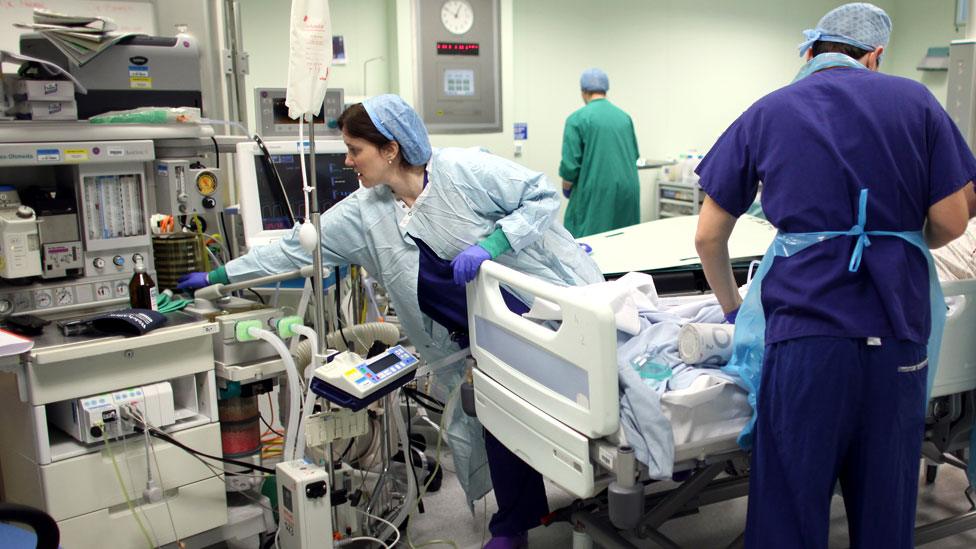Four-day junior doctor strike set for April
- Published
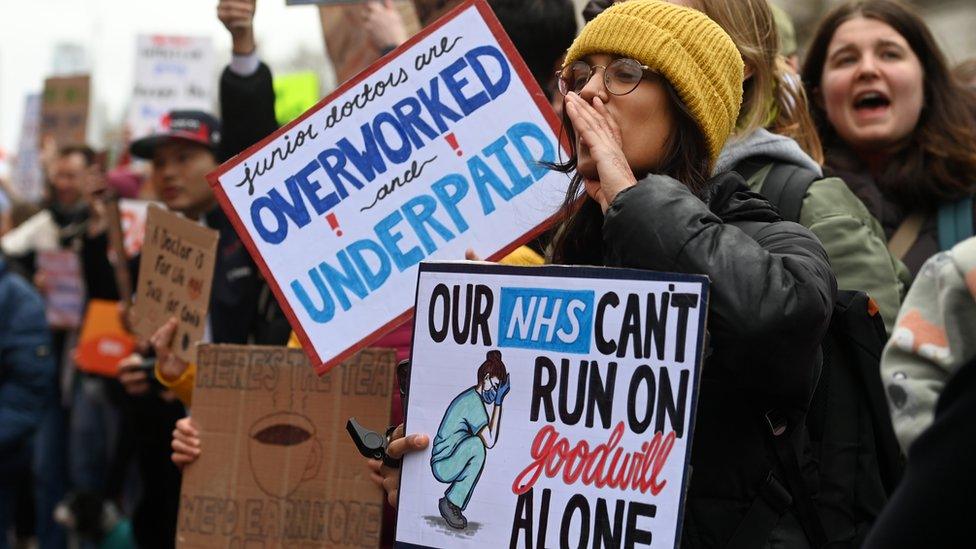
Junior doctors are to stage a four-day walkout in April in their fight to get a 35% pay rise in England.
Members of the British Medical Association (BMA) will take strike action from 11 April to 15 April.
It comes after BMA leaders met Health Secretary Steve Barclay on Wednesday.
Mr Barclay has said the pay claim is "unaffordable". A deal offered to other NHS staff and backed by unions involves a 5% pay rise in April and a one-off payment of at least £1,655.
This offer to staff including nurses, ambulance workers and physios is on top of the 4.75% pay rise they received last year - in comparison junior doctors received around 2%.
Nurses, ambulance staff, physios and other workers are being asked to vote on whether to accept that deal.
The three biggest health unions - the Royal College of Nursing, Unison and the GMB - have all recommended their members accept it.
But the BMA has insisted only a 35% increase will do to make up for 15 years of below-inflation rises.
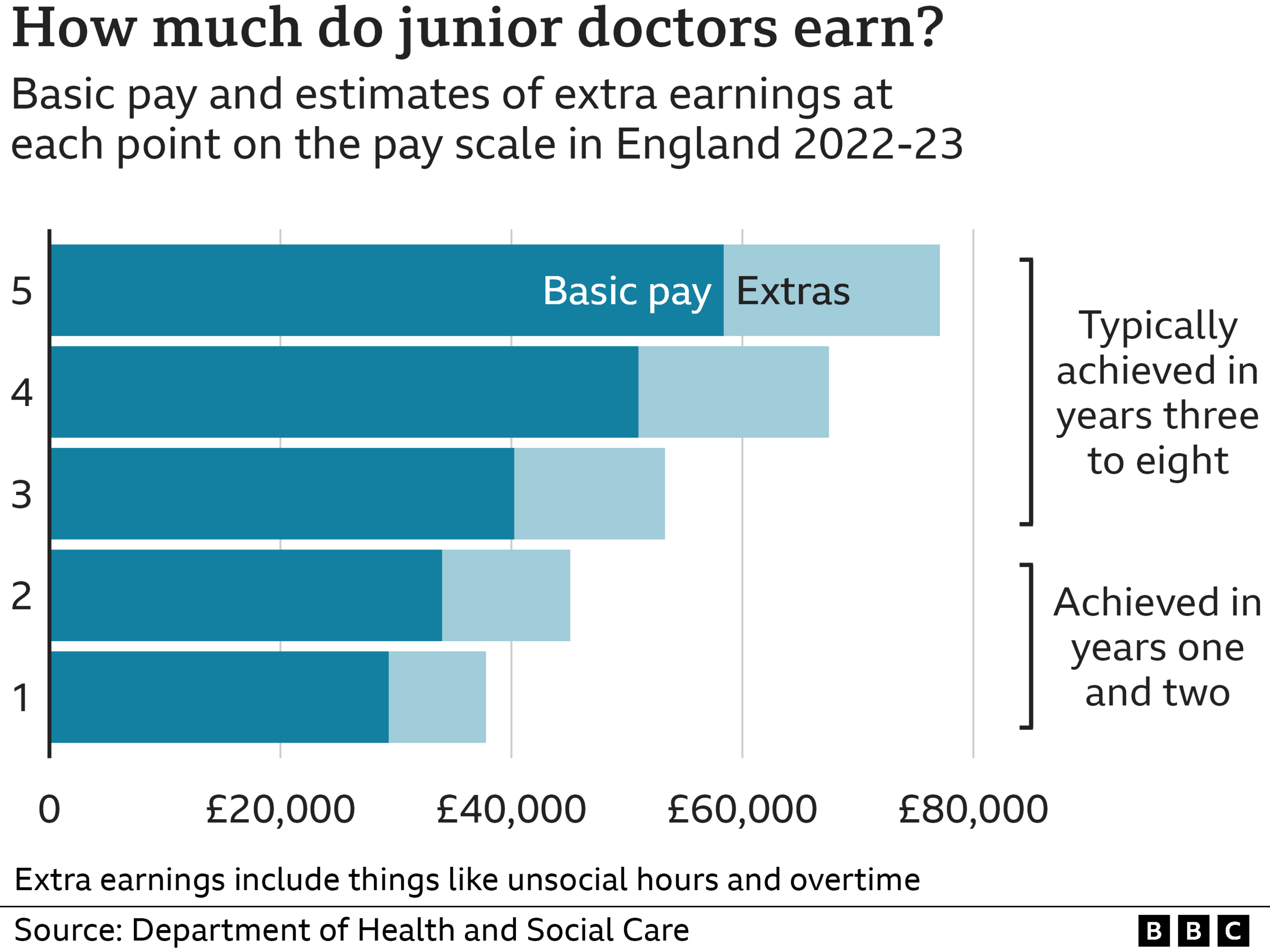
The four-day strikes would follow the three-day walkout that took place last week.
Dr Robert Laurenson, who co-chairs the BMA's junior doctor committee, said: "It is with disappointment and great frustration that we must announce this new industrial action.
"The government has dragged its feet at every opportunity.
"It has not presented any credible offer and is refusing to accept that there is any case for pay restoration, describing our central ask as 'unrealistic' and 'unreasonable'."
Government sources said the BMA has been offered formal pay talks on the same basis as the other unions and that ministers were willing to discuss a pay rise from April and a one-off payment for the past year.
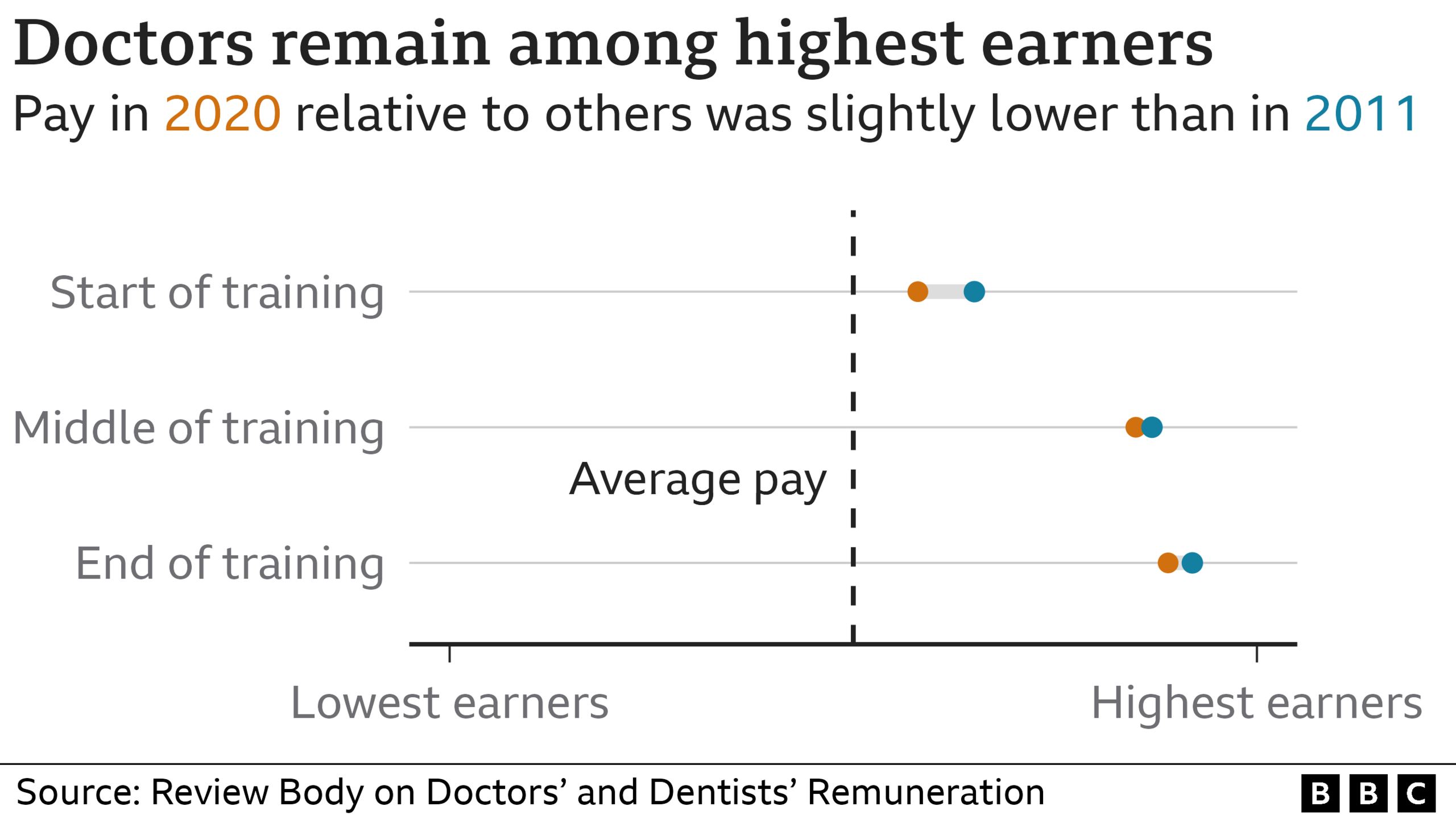
Last week's walkout led to the cancellation of 175,000 treatments and appointments, with consultants brought in to provide cover in emergency care.
Hospitals bosses said the fallout from the strike would last weeks given the huge number of bookings that have to be rescheduled.
The new walkout of both planned and emergency care comes directly after the Easter weekend, which tends to be a busy period for the NHS.
Saffron Cordery, of NHS Providers, the membership organisation for NHS trusts in England, said demand would have built up over the bank holiday weekend.
"This threatens the biggest disruption from NHS walkouts so far," she said, adding: "There should be no doubt about the scale of the impact on patients, staff and the NHS."
She said it was hugely disappointing that talks had broken down, explaining: "Trust leaders understand why junior doctors feel they've been pushed to this point, but it's incumbent on all involved to urgently re-enter talks in good faith."
A spokesman for the Department of Health and Social Care said the strike risked patient safety.
"Our door remains open to constructive conversations, as we have had with other health unions, to find a realistic way forward."
Clarification 25 April 2023: This article has been updated to make clear that junior doctors received a 2% pay rise last year.

Are you a patient with a view on strike action? Are you a patient who will be affected by these strikes? Share your experiences by emailing haveyoursay@bbc.co.uk, external.
Please include a contact number if you are willing to speak to a BBC journalist. You can also get in touch in the following ways:
WhatsApp: +44 7756 165803
Tweet: @BBC_HaveYourSay, external
Please read our terms & conditions and privacy policy
If you are reading this page and can't see the form you will need to visit the mobile version of the BBC website to submit your question or comment or you can email us at HaveYourSay@bbc.co.uk, external. Please include your name, age and location with any submission.
- Published4 March 2023
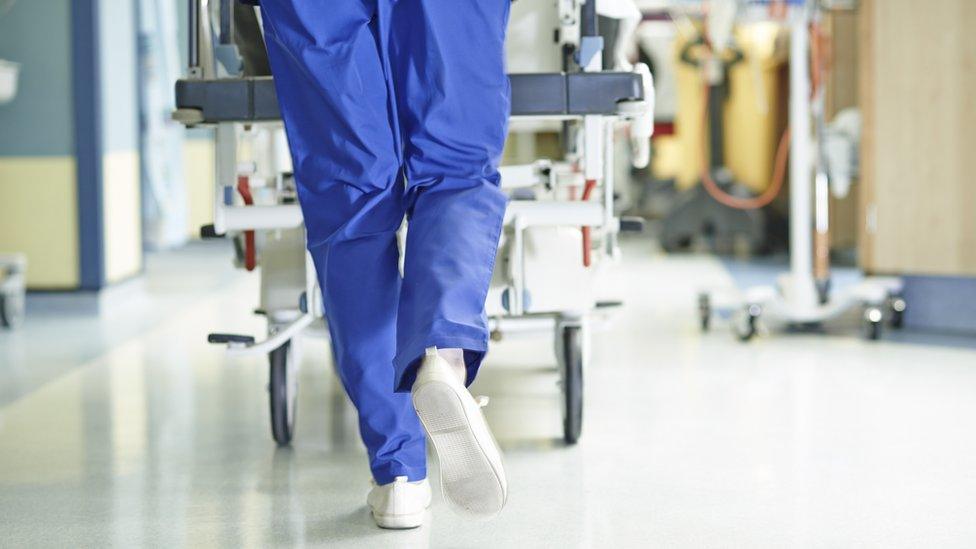
- Published9 August 2022

- Published10 August 2022
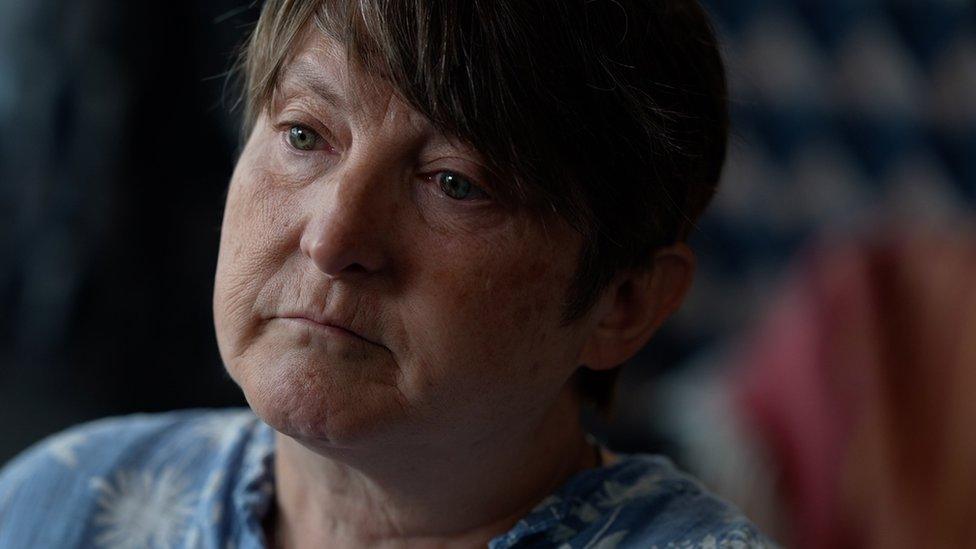
- Published22 July 2022
